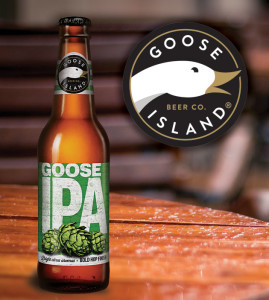 In the past few months, it seemed hardly a week went by without news of one of the big corporate breweries buying up an independent craft brewery. Heck, ABInbev bought out three in one week at the end of December. Big names and lesser known breweries both seem to be the target of the big boys’ affections.
In the past few months, it seemed hardly a week went by without news of one of the big corporate breweries buying up an independent craft brewery. Heck, ABInbev bought out three in one week at the end of December. Big names and lesser known breweries both seem to be the target of the big boys’ affections.
One of the sales that seemed to start it all was ABInbev’s purchase of Chicago’s Goose Island. Longtime craft beer fans all know about Goose Island, who developed a very strong reputation since its opening in 1995. Well, Goose Island was bought out in 2011 and I remember at the time lots of consternation about what it might been for the beer, the brewery’s reputation and the future of craft.
Five years later, we know a couple of things. First, the trend toward acquisition is speeding up. Goose Island’s reputation may have taken a slight hit, but nothing that really held them back. It can be argued the increased distribution for the brand due to ABInbev’s networks has been a net gain for the brand (it is now available in Alberta, for example). As for the beer, has it changed? Well, I thought I would see for myself.
My latest Vue Weekly column is a review of their mainstay IPA (read it here). I remember trying it shortly before the purchase, but I can’t strictly call this a direct comparison as I didn’t take any extensive notes at the time so I am going by memory.
The beer is still an old school East Coast IPA. The brewing standards remain high as the beer still has a rich biscuit character and a piney bitterness. My tastebuds tell me the beer hasn’t changed substantially (but, again, my memory might be faulty). Some claim it is less bitter than it used to be. My response is that it is likely our palates that have changed, rather than the beer.
We can debate the merits of craft beer going corporate. But in the case of Goose Island, I don’t think one of the negatives is loss of quality. I suggest the bean counters have been left out of the Goose Island brewery itself.


February 3, 2016 at 9:36 AM
Everyone says the ipa and honkers are brewed by labatt in Montreal.
I would hesitate to call Goose Island IPA a “classic.” It has always been a very average IPA. I remember buying some as far back as 2007, when IPAs where still new to me, and I was extremely underwhelmed even back then.
With so many better options for IPA these days, certainly fresher, and often local and independent, I dont see how this beer is at all relevant, other than ABInBev is using it to ensure they dont lose taps or shelf space as retailers and pubs are dropping their generic swill in droves.
February 3, 2016 at 10:30 AM
Mark, fair comment. I respect your take on it. Classic may or may not be an overstatement, but I do think Goose’s represents an approach to IPAs that used to be more common – for good or for bad.
I, too, have heard the rumours about where they are produced and have not been able to get confirmation. However, I haven’t tried that hard because I find myself asking “does it matter?” If ABInbev can do anything it is create consistency across brewhouses. If – and this is a big if – they are committed to keeping the beer the same, I am pretty sure they can achieve that.
As always I appreciate your observations.
February 3, 2016 at 11:49 AM
Agreed, beer quality has nothing to do with where it is made or by whom.
My point is dont fool yourself about their intentions. They are using Goose Island and Mill St to slow down the growth of local independents. No more, no less.
ABInBev had a booth this weekend at a large local beer festival. The ONLY branding at their booth was Goose Island and Mill St. Nothing to do with Bud, and certainly nothing to do with Labatt. They dont want anyone to know who they really are. I found it fascinating, especially when the MolsonCoors clowns had garbage Molson branded cider and 67 session IPA at the event.
February 5, 2016 at 7:46 AM
How many people really care who owns who? Does it really matter?
What makes a beer “relevant”?
Goose IPA has won GABF awards in ’01,’04, ’07, ’12. Is that the bar for average?
The growing level of pretention among the beer crowd is really becoming nauseating.
February 7, 2016 at 12:57 PM
The point is that history will repeat itself if you follow the mindset that ownership doesnt matter.
ABInBev doesnt love craft beer or even Goose Island. It is a pawn they are using to crush the competition. Once the competition is weakened, you can be sure Goose Island will be shuttered/dumbed down/deleted.
Tons of books and documentaries on what happened to all the local and regional independent breweries and brands across North America during the 2nd half of the 20th century.